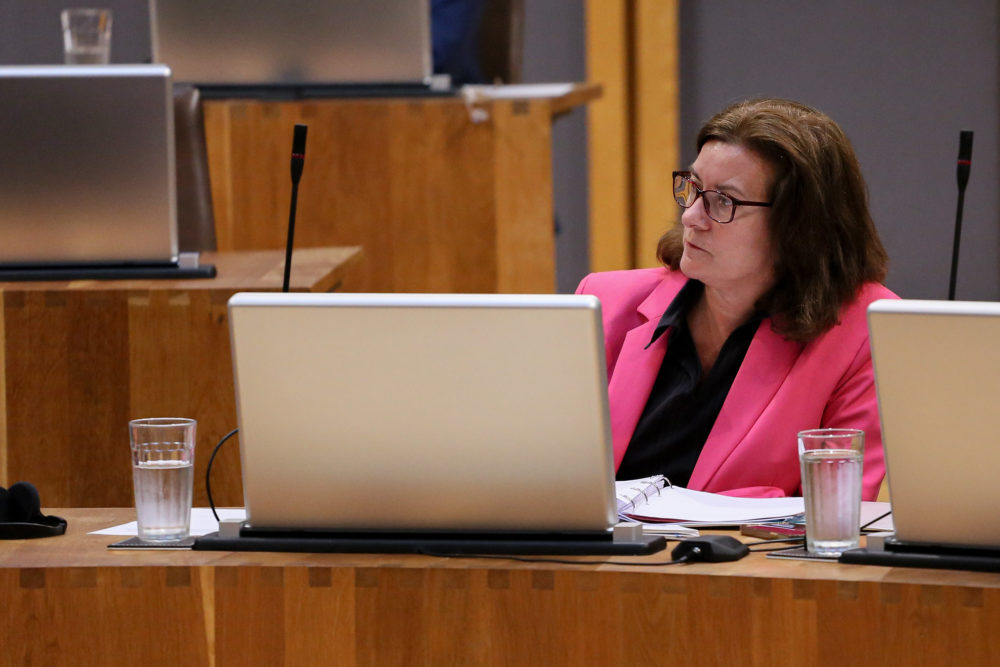Women express disappointment at Welsh Government response to gynaecological cancer concerns

The Welsh Government’s ambition to improve women’s health care has been met with disappointment by women let down by gynaecological cancers services.
In response to a report by the Senedd’s Health and Social Care Committee, the Welsh Government claimed that “the vast majority of those receiving cancer care for gynaecological cancer consistently report high levels of patient satisfaction with NHS services.”
These remarks were met with surprise and disappointment by people who gave evidence to the Committee’s inquiry, who felt strongly that it does not represent their, or their families’, experience.
They say their cancer concerns were repeatedly dismissed by professionals.
Tone
Sioned Cash from Anglesey, whose mother, Judith Rowlands, passed away shortly after her evidence was shown to the Committee, said that the claims at the start of the Cabinet Secretary’s response “sets the tone for the rest of the report to be one which is quite dismissive of there being any issues.”
Claire O’Shea, from Cardiff, who has Uterine Leiomyosarcoma, a rare and aggressive cancer, was also sceptical of the Cabinet Secretary’s claims.
She said: “As a patient, at no point have I been asked about my satisfaction levels with the services I have received.”
She added that she is “deeply disappointed by the tone and the lack of concrete commitments to any transformative change that can meet the challenges and needs of women in Wales now and in the future.”
Reflect
The report will be debated on the floor of the Senedd on Wednesday afternoon (15 May).
Cabinet Secretary for Health, Eluned Morgan, will be called upon to elaborate on some of her responses and to reflect on the women’s feedback.
Russell George, Chair of the Senedd’s Health and Social Care Committee said: “I hope the Cabinet Secretary will reflect on the women’s comments, and offer some reassurance to those who bravely shared their experiences with us.
“There are several areas in the Welsh Government’s response which require further examination during this debate. The delay in delivering a Women’s Health Plan for Wales, the recovery of services disrupted by the COVID-19 pandemic and the unacceptably high number of people diagnosed through emergency admissions at A&E are all concerning.
“Significantly, although the Cabinet Secretary accepted 24 of our report’s recommendations, either in full or in part, her response does not commit to any additional funding.
“Speaking personally, this hard-hitting inquiry has probably been one of the most emotional I have been involved with in my time as a Member. I would like to reiterate my thanks and gratitude to all the incredible women who helped us with our work.
“Each year, around 1,200 people are diagnosed with a gynaecological cancer in Wales. Around 470 people die from gynaecological cancers in Wales every year, a rate higher than the UK average. I hope that our report will bring about the changes so desperately needed to improve the experiences of women in the future.”
A Welsh Government spokesperson said: “We are sorry and disappointed to hear that not all women have received the best possible care. We expect the NHS to learn from these experiences and address the issues.
“We also accept that performance for gynaecological cancer is not where it should be and have launched a £2m national programme to improve performance for gynaecological, urological, and lower gastrointestinal cancers.”
Support our Nation today
For the price of a cup of coffee a month you can help us create an independent, not-for-profit, national news service for the people of Wales, by the people of Wales.








Baroness Bumble must GO…